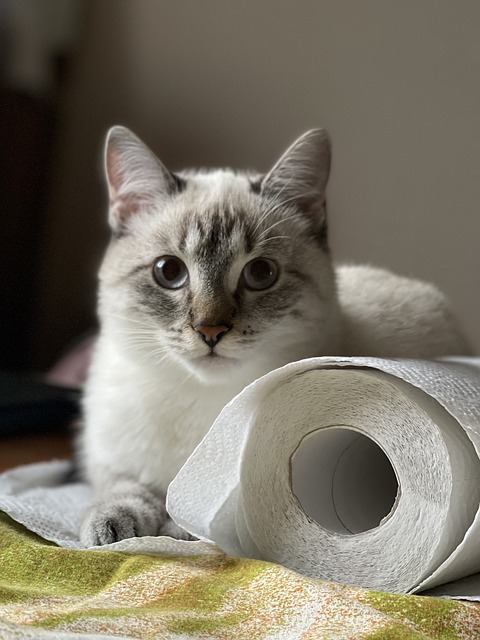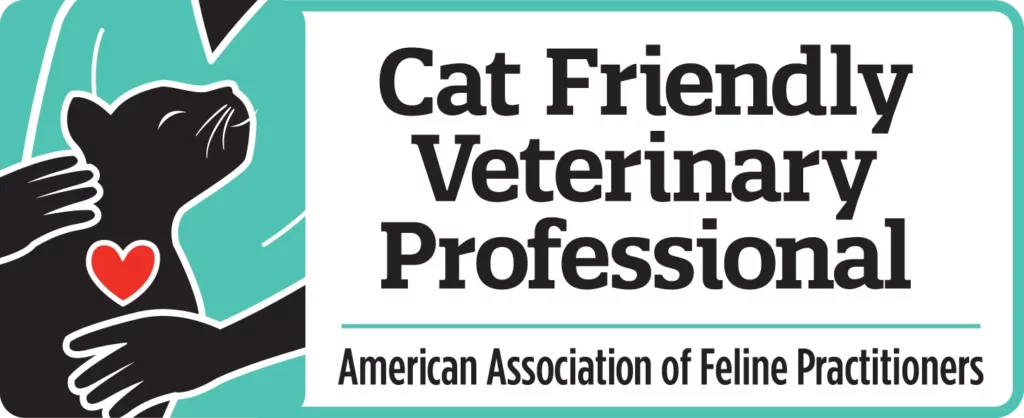I, shockingly as someone who dedicated his life to cats, spend a lot of time talking to folks about cats. One phrase I hear entirely too often is something along the lines of, “I really like dogs, but I’m thinking of getting a cat because they’re an easy pet.” Cats are generally seen as being animals that can just be left alone and you don’t do much with them. I refer to this idea as cats being “decorative pets” because they’re cute and you just leave them be.
But is this true? Are cats really as easy to take care of as some people think? Or are they only seen as being easy pets because we aren’t meeting all their needs? Let’s take a look at both if cats are easier pets than dogs and if cats are easy pets in general.
Are Cats Easier Pets Than Dogs?
Let’s start by comparing cats to the most popular pet in the US: dogs. Seeing as people may get a cat as an alternative to a dog because they perceive them as being less work, this is a good jumping-off point to look at some of the pros and cons of each type of pet.

Litter Boxes vs. Being Let Out
One reason cats typically get a reputation for being easier to take care of than dogs is that they don’t need to be let outside. Yes, you don’t have to let your cat outside every few hours so they can go for longer without you being home (though they can’t go for days without being taken care of… More on that next!). However, the trade off is the litter box. In order to keep your cat happy and using the litter box, it needs to be properly maintained.
Many folks don’t clean their cat’s litter box nearly as often as they should. Ideally, a litter box should be scooped twice a day, but the minimum is once per day. For extra finicky cats, you may need to scoop the box after each use. While there are products that can make scooping easier like the Litter Genie, you still need to maintain the box even if you’re really busy/tired/lazy/whatever. Failure to clean the box properly will result in a stinky box, an unhappy cat, and potentially a litter box not being used entirely.
Cleaning and scooping the litter box is far from the most pleasant part of cat parenthood, but it is completely necessary. People who only scoop once per week or every few days are creating more problems for themselves down the line and often end up with cats not using their litter boxes. I spend a lot of time teaching people how to properly clean cat urine and it is a lot of work.
To use a metaphor a lot of us are familiar with after working from home for the last few years, you can think of litter box maintenance as being asynchronous work: You can do it whenever you please generally, though there are still some work that needs to be done with a deadline. With dogs, you have to be there live to clean up and let the dog out. This is similar to synchronous work.
In both cases, the result is essentially the same: You still have to do all the work in order to get the job done, but it doesn’t have to be done live for cats. In some ways that may be easier for you, but maintaining a litter box has its own downsides so it may end up being a wash between the two.
Cat Sitters Are Necessary
Another myth I still hear is that cats don’t need a pet sitter. Some people just leave their cats home for the weekend with water, a clean box, and food (or an automatic feeder) sitting out. Cats are self-sufficient! They’ll be fine! … Right?
This is actually a terrible practice. As I already pointed out, litter boxes need to be cleaned daily. You really need to have someone swing by to scoop the cat’s box every single day so they continue to use their box. Even as someone who has an automatic feeder, I still need to make sure my cats are eating and nothing goes wrong with the feeder.
Speaking of litter boxes, you want someone monitoring your cat’s litter box usage to make sure they aren’t showing signs of a medical emergency. In male cats in particular, urinary blockages can lead to death within 2-3 days if not addressed immediately. Even if you just leave your cat for the weekend, you may not realize your cat hasn’t urinated until it’s too late. It could also be too late by the time you get home.
Your Cat Needs Human Interaction
Behaviorally, the biggest problem however is that this is likely to result in a bored, under-stimulated cat. Contrary to popular belief, cats like us more than we think. They need some socialization and also need plenty of playtime. Leaving them alone for a whole weekend is not going to result in a cat with pent up energy even if you leave toys and fun enrichment activities out for them. They still need actual interaction and play. A bored cat is much more likely to get into trouble and you may come home to find they have gotten into your stuff or destroyed things you were hoping would stay intact.

A good pet sitter will stop in at LEAST once per day to check in on your cat, though twice daily may be better. You can help keep your cat stimulated between visits with toys, a bird feeder to attract birds, and leaving out a feeder toy. This still won’t fully make up for interactive play with a human.
While you may think that by getting a cat you can leave for a few days without someone watching them, that isn’t actually true. To be blunt, you’re neglecting your cat’s basic needs and putting them at risk by doing so. Turns out that this isn’t an advantage over dogs after all.
Are Cats Easy Pets For People With Busy Schedules?
Not everyone is going to compare cats to dogs and may just be looking for an easy pet because they are busy. Perhaps they work long hours, have a lot of responsibilities, or they travel frequently, but still want the companionship of a cat. While cats are awesome and their companionship is something that cannot be replaced, are they easy enough to just set and forget?
Cats Need A Lot Of Mental Stimulation
Cats are incredibly intelligent. Sure, they may do silly things sometimes and things that to us don’t make sense, but they’re very adaptive to their environment. In fact, a lot of what people describe as a cat being manipulative is just the cat learning (and if you think about it, dogs do the same things but we don’t typically call them manipulative).
Because of this, cats need to have their minds occupied. Failure to keep your cat’s mind busy in a way that meets their basic mental needs will result in behaviors that are either annoying, destructive, or even dangerous. And no, this doesn’t mean just leaving toys out for your cat to play with on their own. These toys aren’t as exciting as a fully hunt with an interactive toy to your cat.
Your cat still needs active play or other ways to keep their mind busy. While some things, like puzzle feeders, can be a “set it and forget it” thing, your cat is going to need more than that. You should plan to do 2-3 plays sessions per day for most cats that are 10-15 minutes each. At a minimum, I’d expect an hour of directly interacting with your cat daily in order to meet their needs.
If you have a partner, roommate, or someone else living with you who can help meet this need, then you may be fine. If whoever you live with is also pretty busy, you may want to get a cute stuffed cat instead. You could consider a senior cat who needs a home to live out their golden years, though please don’t neglect the poor senior. You still need to plan to spend plenty of time giving them attention.
You Should Train Your Cat
As a professional cat trainer, I’m biased when I say that cats should be trained. Genuinely, though, I wish more people would train their cats. It makes communication easier, is a great way to prevent boredom, and can be used to address all sorts of unwanted behaviors. It’s also more effective than trying to use a squirt bottle.
Training cats doesn’t need to take up all your time, either. If you have 2-3 minutes per day, you can train your cat. It helps reduce boredom and I’d argue it’s a basic part of cat parenthood. If you don’t don’t even have 2-3 minutes to spare for your cat, you may want to get a Hello Kitty Tamagotchi (or a cat GigaPet) instead. They’re fine with a bit less stimulation.
So Are Cats Easy Pets?
I hope it’s abundantly clear by now that no, cats aren’t actually easy pets compared to dogs or in general. Yes, they may fit some people’s lifestyles better than a dog would. They are far from easy (or decorative) pets, though. A properly taken care of cat takes work as they are living creatures with mental and physical needs that need to be met, but they are so worth it.
A better way of looking at the level of difficulty of taking care of a cat compared to a dog is to think of them as being different rather than easier. Cats are a different species so they have different needs than a dog does. Those needs are challenging in a different way than dogs’ needs are challenging. You still have to meet those needs so be prepared to do some work for your cat.
And if you’re thinking of getting a cat as an “easy” alternative to a dog? I urge you to pause before doing so. Cats are fantastic in their own right and there are plenty of reasons to get one that aren’t just as an alternative to a dog. You’ll still need to do plenty of work, spend money on your cat, and make sure their needs are taken care of even if it’s in a different way than you would a dog. Get a cat because you want a cat and you’ll be much happier!










